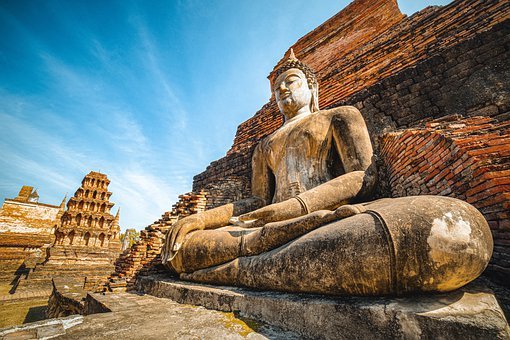Why do we not cling to dreams, but cling to this samsara? This is because the dream lasted for a short time, the next day, we will realise that the objects we perceive the night before are delusional and non-existent now. Whereas the cycle of time for samsara is very long, we have no way able to reach to the edge of samsara. However, for bodhisattvas, in spite of being a commoner previously, once they attain Bodhisattvahood, it is just like a dream is awaken, they would know that the cyclic existence is a mere delusion and dream-like.
~Depicted from LUMINOUS WISDOM BOOK SERIES











